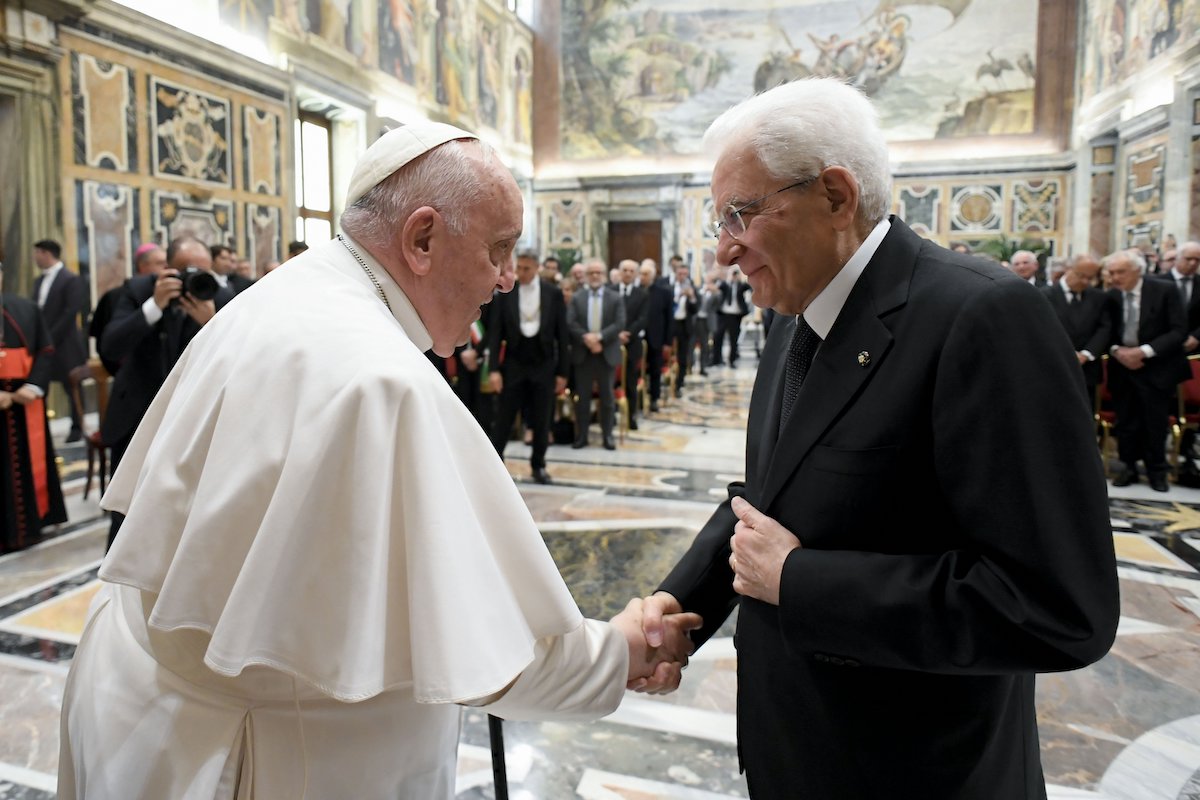By Carol Glatz, Catholic News Service
VATICAN CITY (CNS) — The greatest way of life is serving others, and those in political power must see themselves as servants, too, Pope Francis said.
“Yet, we know well how difficult this is and how the most common temptation, in every era and even in the best political systems, is to serve authority” rather than to use one’s authority to serve others, he said.
“How easy it is to climb onto a pedestal and how difficult it is to climb down in the service of others!” the pope said during a ceremony at the Vatican May 29 to award the Paul VI Prize to Italian President Sergio Mattarella.
The international prize was established in 1979 by the Paul VI Institute in Brescia, Italy, named in honor of St. Paul VI, whose feast day is May 29, the date of his priestly ordination in 1920.
The prize, which includes a large cash donation to a charity of the recipient’s choice, was given to Mattarella, 81, who was elected president of the Italian Republic in 2015 and reelected in 2022. He said he would donate the prize money to help people affected by the floods in the Emilia Romagna region and, particularly, to the Pope John XXIII Community there, which serves the homeless and other marginalized groups.
Addressing those present for the award ceremony in the Vatican’s Clementine Hall, the pope reiterated St. Paul VI’s belief that “those who exercise public power must consider themselves ‘as the servants of their fellow countrymen, with the selflessness and integrity befitting their high office.'”
The way to make political activity a form of charity and to live charity, which is love, within the political world is through this sense of service, Pope Francis said.
Conferring the Paul VI Prize on President Mattarella, he said, was “a good occasion to celebrate the value and the dignity of service, the highest style of living, which puts others ahead of one’s own expectations.”
Service, however, is always linked to responsibility, particularly understanding that everyone shares responsibility for offering answers and being committed to ending injustices, he said.
“It is almost automatic to blame others,” he said, and, “in a climate of uncertainty, distrust is easily transformed into indifference.”
Responsibility calls for everyone to “go against the grain with respect to the climate of defeatism and complaint, to feel the needs of others as their own and to rediscover themselves as irreplaceable parts of the unique social and human fabric to which we all belong,” he said.






